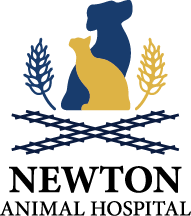Library
-
In pregnant mares, unlike most other animals, antibodies do not cross the placenta into the foal's blood stream before birth. Therefore, when a foal is born it has no natural defence mechanisms against infection because it has no antibodies, that are the blood's special immune proteins, with which to fight infection.
-
It is a well recognized saying 'no foot no horse'. Caring for your horse's feet and hooves and ensuring that he is attended to regularly by your farrier will safeguard his long term soundness.
-
Turtles are omnivorous, eating both animal protein and vegetable matter. It is important to offer a variety of food to stimulate the turtle to eat and provide nutritional balance. This article discusses how and when to feed your aquatic turtle, recommended foods, supplements, and water requirements for optimal nutrition.
-
Box turtles are omnivorous. Generally, your box turtle's diet should be about 50% plant-based material and 50% animal-based material, but be sure to discuss a specific diet plan for your turtle with your veterinarian. Most young turtles eat daily, while older turtles can be fed either daily or every other day. This article discusses the best foods for your turtle, supplements, water, and light requirements for optimal nutrition.
-
Ferrets are carnivores and cannot handle a diet containing more than 4% fiber. A good quality ferret diet should contain 32-40% protein and 10-15% fat. There are several good commercial dry foods for ferrets.
-
The goal of feeding growing kittens is to lay the foundation for a healthy adulthood. Growing kittens need higher amounts of all nutrients in comparison to adult cats, but excess energy and calcium can create serious problems. Work with your veterinary healthcare team to give your puppy the best chance for success at growing into a healthy adult cat.
-
The goal of feeding growing puppies is to lay the foundation for a healthy adulthood. Proper nutrition is critical to the health and development of puppies, and it directly influences their immune system and body composition. Work with your veterinary healthcare team to give your puppy the best chance for success at growing into a healthy adult dog.
-
The preferred basic diet for guinea pigs is unlimited amounts of Timothy or other low-calcium hay, supplemented with smaller amounts of a commercial, high-fiber, Timothy-hay based guinea pig pellets. The diet should be supplemented with a variety of fresh, well-washed, leafy greens or colored vegetables; especially those high in vitamin C. Guinea pigs cannot manufacture their own vitamin C, therefore it is important that guinea pigs receive a vitamin C tablet or liquid vitamin C directly by mouth every day. Provide fresh clean water in a sipper bottle and check the tube for blockages each day.
-
Orphaned kittens need extra care to compensate for the absence of their mother, and this article outlines the basics, including how and what to feed, how to monitor their weight, how to help them eliminate, and how to keep them safe from infection.
-
Orphaned puppies need extra care to compensate for the absence of their mother, and this article outlines the basics, including how and what to feed, how to monitor their weight, how to help them eliminate, and how to keep them safe from infection.


